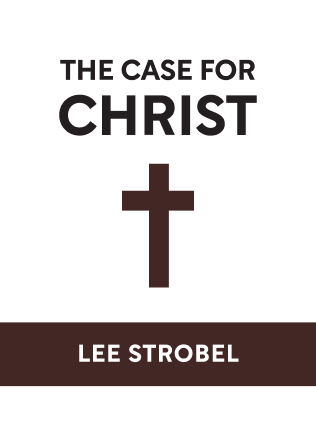

This article is an excerpt from the Shortform summary of "The Case for Christ" by Lee Strobel. Shortform has the world's best summaries of books you should be reading.
Like this article? Sign up for a free trial here .
What is the Jesus seminar? What did the Jesus Seminar determine about whether or not Jesus existed?
The Jesus Seminar was a small group of scholars who decided to attempt to understand the existence of Jesus. The Jesus Seminar did determine that Jesus existed, though their methods were not necessarily the most straightforward.
Read more about the Jesus Seminar and its conclusions.
What Did The Jesus Seminar Prove?
In the ’90s, a small group of New Testament scholars calling themselves the Jesus Seminar rose to prominence. These scholars, a tiny minority of New Testament experts, received a wealth of media coverage due to their idiosyncratic methods and radically new accounts of the Bible. For example, the group voted on the authenticity of each of Jesus’s sayings with colored beads; later, they published a book called The Five Gospels (the canonical four plus the Gospel of Thomas), which featured color-coded text reflecting their votes. 82% of the book was rendered in black, the color for words Jesus never said at all; only 2% of the book was in red, the color for words Jesus definitely said.
Given the attention paid to the Jesus Seminar and its critics in the media and their assertions of Jesus’s “materiality” (that is, his mortality rather than his deity), Strobel feels it’s vital to consider, and, hopefully, refute, the Jesus Seminar. To do so, he visits Dr. Gregory Boyd, a professor at Bethel College who received his graduate education in divinity at Yale and Princeton. Boyd is the author of a 416-page scholarly rebuttal to the Jesus Seminar entitled Cynic Sage or Son of God? Recovering the Real Jesus in an Age of Revisionist Replies, and, in addition to his scholarly work, he serves as a pastor at Woodland Hills Church in St. Paul, Minnesota.
What Does the Seminar Believe?
The Jesus Seminar holds that Jesus as a historical human being did indeed exist. This Jesus, however, was exclusively a “naturalistic” Jesus. That is, this Jesus might have had extraordinary qualities—of leadership, charisma, or piety—but he was not in any way supernatural; according to the Seminar, the accounts in the gospels of miracles like walking on water or rising from the dead are almost certainly legends created by Jesus’s followers to cope with his death and burnish his memory.
Advocates of a divide between a naturalistic Jesus and a mythological one often point to the historical context in which Jesus lived, a time when miracle workers were not uncommon and so-called “mystery religions” built around resurrections were in existence. When these facets of the ancient world are cited, there are two claims being made: (1) that Jesus’s supernatural qualities weren’t actually true to him, but rather imported from preexisting and obviously mythological sources; and (2) that if there were other similarly endowed figures around at the time as Jesus, Jesus isn’t uniquely deserving of worship.
The Jesus Seminar aims to develop a new Christianity, one free of fundamentalism and responsive to the situation of contemporary human beings. Scholars in the Jesus Seminar hold a variety of viewpoints on Jesus: Some see him as a religious zealot, others as a political revolutionary, still others as a proto-feminist or socialist.
Foundational Assumptions
Although the members of the Jesus Seminar and its critics portray themselves as lonely truth-tellers amid a sea of biased believers, their positions are actually undermined by their own biases.
For example, the scholars associated with the Jesus Seminar assume from the outset that any sort of supernatural event is impossible, simply because none of them have ever witnessed such an event. When you start your analysis of the New Testament or the historical record of Jesus from this position, the gospels become mythological, thus untrustworthy, and you inevitably end up with a naturalistic Jesus.
Beginning with this assumption, however, is in fact an act of enormous hubris. Is it more humble and objective to say, “The supernatural is impossible in any time or place no matter what” or “At certain unique points in human history, it’s possible that God has intervened in the world”? When you begin with the humility of the latter assumption, then the historical and documentary evidence of Jesus’s deity begins to look very different.
Problems of Method
To determine the authenticity of Jesus’s pronouncements, the Jesus Seminar uses an array of flawed criteria, including double dissimilarity and multiple attestation.
Jesus as One Among Many
Members of the Jesus Seminar and its critics have sought to emphasize Jesus’s “naturalism” by placing his pronouncements and deeds in historical context—by showing that rabbis and other Jewish figures were purported to have performed miracles as well. If other religious leaders of the time were perceived as having supernatural powers—powers no one now believes in or takes seriously—then it stands to reason Jesus’s powers should be treated similarly: as myth.
However, the parallels between Jesus and other “wonder workers” of the time don’t go very far. Boyd notes three ways in which Jesus is unique:
- No other religious leader was so closely associated with the supernatural.
- No other religious leader performed miracles of Jesus’s caliber (whereas rabbis were known to bring rain by praying for it, no rabbi was known to have cured permanent illnesses or raised the dead).
- No other religious leader performed miracles on his own authority (whereas rabbis would pray for God to perform a certain miracle, Jesus assumed that authority himself as God himself).
Suppressed Gospels
Arguably the most controversial of the Jesus Seminar’s pronouncements was that the Gospel of Thomas, a long marginalized text, should be included in the New Testament canon. The Gospel of Thomas features passages that the Jesus Seminar argues (1) predate the accounts of Jesus found in the canonical gospels and (2) depict a naturalistic Jesus.
Scholars associated with the Jesus Seminar have also raised questions about other “secret gospels” that have been discovered, including “Secret Mark” and the “Cross Gospel.” Some Jesus Seminar members have speculated that these secret gospels feature revelations about Jesus that expose him as exclusively mortal.
To most serious scholars of the New Testament, however, these so-called “secret gospels” are simply a distraction. In fact, most aren’t even discoveries: theologians have long known about the Gospel of Thomas—and have dismissed it because it so clearly contravenes the Jesus of the canonical four gospels (see Chapter 3).
“Secret Mark,” according to its proponents, is a longer and more reliable version of the gospel of Mark, one that was suppressed by the early Church. The problem with this assertion is that no copy of “Secret Mark” exists, and there’s only the thinnest evidence it ever did exist. Everything we know about “Secret Mark” is contained in a quote from it included in a letter by a second-century author. (And, curiously enough, there’s no existing copy of the letter, either—only a picture taken of it by the mid-twentieth-century scholar who found it.)
(Shortform note: Some contemporary commentators believe that the scholar who photographed the letter actually fabricated it.)
Boyd’s Personal Journey
For liberal interpreters of the New Testament, like the scholars comprising the Jesus Seminar, Jesus’s divinity becomes symbolic: The miracles and resurrection are there simply to inspire Christians to hew more closely to Jesus’s teachings.
For Boyd, whose belief is rooted in his years of scholarship and deep faith, this understanding of Jesus is utterly wrongheaded. Jesus’s power to inspire and instruct is indistinguishable from the truth of his supernatural abilities; Paul himself says that if the resurrection didn’t truly happen, then faith is useless. The fact that Paul—and the gospel authors—remain committed to their faith is a token of Jesus’s divinity in fact.
Boyd, too, is committed to Jesus because he is certain of the reality of Jesus’s divinity. He acknowledges that some of the claims about Jesus, the supernatural ones in particular, are perhaps hard for a modern person to believe. But the evidence for those supernatural events—the healing of the sick, the rising from the dead—is incontrovertible. The Jesus Seminar’s distinction between a “Jesus of History” and “Jesus of Faith” simply doesn’t hold up under scrutiny; the Seminar’s central pieces of evidence are thin and/or contradictory, whereas the New Testament, coupled with secular sources like Josephus, paints a remarkably consistent picture of a divine Jesus.
For Boyd, it’s a no-brainer for him to put his trust in the gospels.

———End of Preview———
Like what you just read? Read the rest of the world's best summary of Lee Strobel's "The Case for Christ" at Shortform .
Here's what you'll find in our full The Case for Christ summary :
- How an atheist lawyer-journalist researched Christ and began believing
- The key arguments against the existence of Christ, and why they don't hold up
- How to make up your own mind about whether Christ existed






